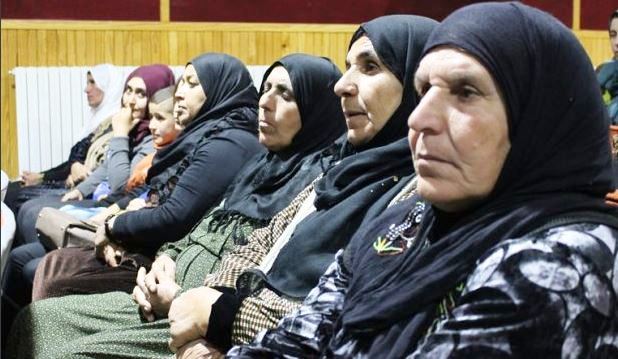Analysis
The women of Rojava have a plan
In the place where the Islamic State once governed, violence has become collective. Now the Kurdish Syrian community is fighting back with a counter-slogan: “women, life, freedom.”

“Women, life, freedom.” This was the slogan of the marches that began Saturday in the Kurdish Syrian towns of Kobani and Tal Abyad, shouted by hundreds of men who have joined the initiatives organized by the Kurdish women of Rojava. While feminist NGOs, associations and women in the rest of the Middle East have for decades chosen to mobilize on March 8, in northern Syria the internationalism that has taken hold of the Kurdish revolution has in recent years led to events being organized for the International Day for the Elimination of Violence against Women.
Here, Nov. 25 has a special meaning: Individual and domestic violence has become collective, a product of the Manichean and patriarchal ideology of the Islamic State. This year, the women of Rojava have launched debates and discussions in local communities, the heart of the democratic confederalism that since 2011 has been lived out in practice here.
Roundtables and symposia were held in the major Kurdish cities, in Tal Amir, Hasakeh, Kobanî and Tal Abyad. Just a few days ago, in Raqqa, newly liberated from Islamist occupation, the victory against ISIS was dedicated by the Kurdish female fighters of the YPJ to women everywhere in the world.
In cooperation with the civilian council of Raqqa, the women organized a symposium in the Ain al Issa refugee camp, a home of necessity for thousands of displaced Syrians from the provinces of Raqqa and Deir Ezzor, waiting for their eventual return, a process slowed by the destruction and rubble, the devastation of roads, houses, shops and entire neighborhoods.
Gender violence has been the topic of conversation for weeks: starting from Nov. 5, Kongra Star (the confederation of feminist movements in the region, born from Yekitiya Star, founded in 2005 on the impulse of the new political theory promoted by the PKK leader, Ocalan) has been organizing various events around the region, a series of initiatives that culminates today. The events ranged from debates in different languages (Arabic, Kurdish, Syriac) and the distribution of books and publications to the marches taking place today in the three cantons of Kobani, Jazira and Afrin.
“We all want to know what our rights are today,” Nujin Yousef, a member of the Syrian Democratic Council, linked to the Syrian Democratic Forces (a federation of Kurds, Arabs, Assyrians and Turkmen protagonists of the last successful offensive against ISIS) said to the ANHA news agency. “As Syrian women, we discuss our issues and the violence that we have suffered. We, especially women, should discuss the issue of violence, and the methods that they [men] have practiced against us.”
Arranged marriages imposed by families, sexual abuse, physical violence — but also a low level of participation in the social, economic and political life of the communities. These phenomena have been uprooted in Rojava, which has made the liberation of women the main instrument for the liberation of peoples, building on the idea that colonialism and modern capitalism are based on the patriarchal model, and that the fight against the exclusion of women is the means for eliminating collective slavery in all forms.
In Rojava, this process has given rise to new legislation, a product of grassroots demand: child marriages and forced marriages are banned, polygamy is outlawed, and the institution of civil marriage is being promoted. But the struggle, according to the women of Rojava, is not over. It goes on, within a continuous process of consciousness raising that primarily aims at women themselves, the narratives they are expressing in their lives and the limitations they set on themselves.
Originally published at https://ilmanifesto.it/le-donne-di-rojava-hanno-un-piano-il-tempo-dei-nostri-diritti-e-oggi/ on 2017-11-25
